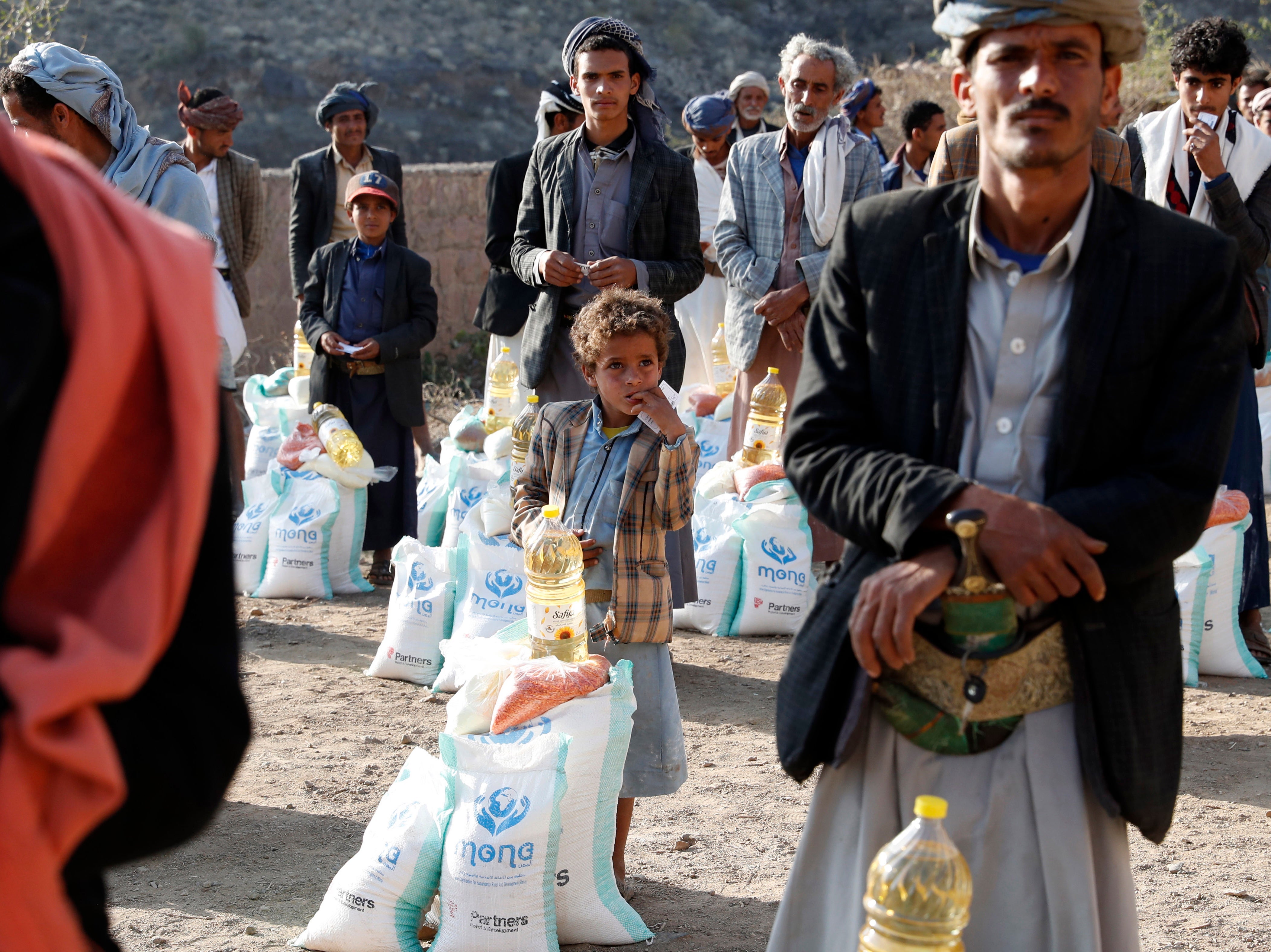UK urged not to cut life-saving aid to Yemen
Britain ‘cannot wash our hands’ of complicity in humanitarian crisis, Tory MP says

Your support helps us to tell the story
From reproductive rights to climate change to Big Tech, The Independent is on the ground when the story is developing. Whether it's investigating the financials of Elon Musk's pro-Trump PAC or producing our latest documentary, 'The A Word', which shines a light on the American women fighting for reproductive rights, we know how important it is to parse out the facts from the messaging.
At such a critical moment in US history, we need reporters on the ground. Your donation allows us to keep sending journalists to speak to both sides of the story.
The Independent is trusted by Americans across the entire political spectrum. And unlike many other quality news outlets, we choose not to lock Americans out of our reporting and analysis with paywalls. We believe quality journalism should be available to everyone, paid for by those who can afford it.
Your support makes all the difference.The UK government has been warned against cutting aid to Yemen, amid fears tens of millions of pounds will be slashed from Britain’s contribution to humanitarian relief efforts.
Millions of people in the war-torn country will go hungry this year and hundreds of thousands are already facing famine, the UN says.
Ahead of a UN donor conference on Monday, at which secretary-general Antonio Guterres will ask the world for $3.85bn (£2.76bn) in aid for Yemen, former Tory minister Andrew Mitchell said UK funding might fall by as much as half from 2020 levels, when £214m was sent.
Rishi Sunak, the chancellor, announced last year that Britain planned to cut its international aid budget from 0.7 to 0.5 per cent of GDP, amid the economic fallout of the coronavirus crisis. In doing so he broke a Conservative manifesto pledge.
Mr Mitchell said reducing help for Yemen would have dire consequences and damage Britain’s global standing, given its backing for Saudi Arabia’s coalition, which is battling Houthi rebels there in a conflict that has caused widespread civilian casualties.
Speaking to BBC Radio 4’s Today programme, Mr Mitchell said that while he was yet to see firm figures, there could be a cut of as high as 50 per cent in Britain’s support for Yemen. He said: “The effect of a 50-per-cent cut would be very serious indeed.
“Sir Mark Lowcock, the senior British official at the UN, has made it clear that were a cut like that to take place, four million Yemenis, mainly children, will continue the slow, agonising and obscene process of starving to death.
“Britain holds the pen on Yemen. We are the senior country at the UN which addresses the issues of Yemen. And it's happening during the British presidency of the UN Security Council.”
Mr Mitchell added that the UK was “complicit” in the disaster gripping Yemen and that cutting aid would set “a very bad example”.
He said: “We cannot wash our hands of that. The military campaign in Yemen has led to the destruction of infrastructure. It's led to the famine conditions which exist there now.
“And the UN says with authority that this could be the worst famine the world has ever seen.”
Tobias Ellwood, the Conservative chair of the Commons defence committee, also warned against cutting aid.
He told the Evening Standard: “It is not just the largest humanitarian challenge in the world, it is also the fact that Al Qaeda is taking full advantage of the absence of any government.
“It is an unwise step. This is our first big test with an invigorated White House wanting to rejuvenate western resolve. It is not the message we should be sending.”
Save the Children said it was “dismayed” by reports of a planned cut.
Kevin Watkins, its UK chief executive, said: “The UN is already warning that 400,000 children under five might die if more is not done to help.
“To slash food and medicine to these children as they stand on the brink of famine and a second Covid-19 wave risks many thousands of deaths and flies in the face of Britain’s proud tradition of coming to the aid of people in need.”
The Foreign, Commonwealth and Development Office declined to deny it was planning an aid cut when contacted by The Independent.
A spokesperson said Monday’s donor conference would be attended by James Cleverly, the Middle East minister. They added that in September last year, Dominic Raab announced a £119m fund to combat both famine and coronavirus in Yemen, Somalia, Central African Republic, Democratic Republic of Congo, the Sahel, Sudan and South Sudan.
The UK has committed more than £1bn to ease the Yemen crisis since 2015, and the foreign secretary has previously warned of the risk of famine. In a press release last December he also called on other countries to help.
He said: “The UK cannot solve this crisis alone. Other donors must now release their funding and contribute more support to prevent this becoming an even bigger tragedy.”
Yemen’s war began in 2014 when Houthi rebels seized the capital, Sanaa, and the Saudi-led, US- and UK-backed coalition later intervened in an attempt to restore the internationally recognised government. The conflict has killed some 130,000 people and led to the world’s worst humanitarian disaster.
Westminster has been criticised for supplying arms to Saudi Arabia for use in its bombing campaigns. Following a pause, last July it was announced that arms sales would resume despite fears UK weapons had been used in war-crime incidents.



Join our commenting forum
Join thought-provoking conversations, follow other Independent readers and see their replies
Comments